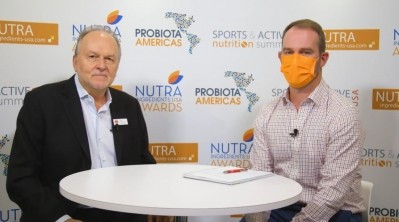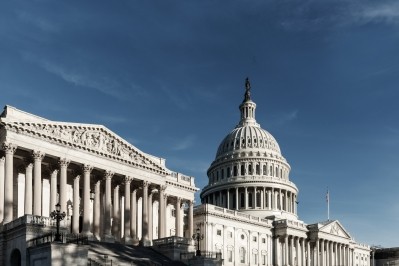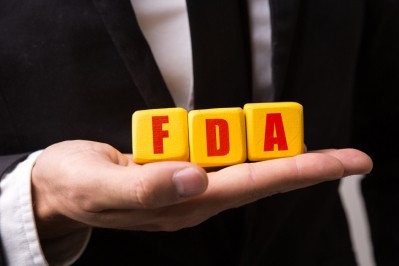UNPA's Israelsen on DSHEA 2.0 & CBD: ‘Unless there is unity, it just gets harder’
“That’s the key message,” Israelsen told NutraIngredients-USA. “Unless there is unity, it just gets harder.”
DSHEA 2.0
Israelsen, who was a key architect of the Dietary Supplement Health and Education Act of 1994, said that there has been a noticeable uptick in the level of discussion around the modernization of DSHEA, and this is driven by a couple of issues: Firstly, CBD, and secondly, there has just been a reflection of the law as time has passed.
“DSHEA has aged very well,” he said, “and I would remind people it has never been amended and it remains an intact statute nearly 28 years later.”
The principles of DSHEA 2.0 depends on who you ask, he added. For example, four consumer groups and a prominent physician from Harvard – Dr Pieter Cohen – recently sent a letter to members of Congress calling for significant reforms to DSHEA, including mandatory product listing and registration, closing the GRAS loophole, bolstering Adverse Event reporting, labeling of supplement-drug interaction warnings, allocating additional resources to the ODSP and strengthening enforcement, and more.
FDA has its own wish list, said Israelsen, which includes a mandatory product listing, perhaps reversing the burden on proof (which is carried by FDA), and looking again at the NDI process. Ideas bouncing around for the NDI issue include moving the grandfathered date forward or FDA recognizing an authoritative list of grandfathered ingredients.
“Both industry and FDA have their DSHEA 2.0 lists. We haven’t publicly declared those. I don’t think they will be an exchange of hostages – you give us your list and we’ll give you ours – but I am hopeful that there is a way for both sides to gain in a DSHEA 2.0 approach.”
“I would continue to urge that we think carefully about the scope of what needs doing, and how surgical we can be to get to some of the issues that would improve efficiency, that would allow industry to do its job better. There are a number of really good ideas that are very practical ideas, but they may not rise to a statutory level. Some of these are regulatory fixes and administrative changes.
“The trade associations have very active discussions. There are regular exchanges of thought to ensure that as we represent our individual members and the industry as a whole, it is expected that we will do our best to have a unified view on a range of issues. We’re working hard to do that. There will be differences of opinion, but we’ve been told by members of Congress and staff is, ‘it sure works better when y’all come in with a singular message to us’.”
CBD
On the topic of CBD, UNPA has confirmed it supports the passage of H.R.841, the Hemp and Hemp-Derived CBD Consumer Protection and Market Stabilization Act. The act is also supported by other dietary supplement and hemp organizations.
“I think that we had all hoped to see FDA take initiative and go through a thoughtful process that would end up with an NDI mechanism for dietary supplements. FDA’s going through an awful lot of change right now: We don’t have a confirmed commissioner, a number of senior staff that have been involved in the cannabis task force, which is looking at CBD, they’ve gone, so it’s hard for us to see FDA move this at the speed that we think is required. Therefore, we’re looking at 841 as the starting point,” he said.
Amazon
Israelsen also discussed Amazon’s dietary supplement specifications, and how the recent update is seen as a “major improvement.
“Amazon listened [to industry feedback],” he said. “They really incorporated some of the core principles that we recommended to them. For example, letters of guarantee: What they’ve said [now] is show us, don’t tell us you’re doing something: They’ve tightened up the requirements for CoAs. They want details.
“They’ve also allowed much broader use of labs beyond the 17025 parameter. Larger companies that have fully-staffed in-house labs can now use those labs and their CoAs to submit for compliance purposes if the facility is GMP compliant. They dramatically expanded the certifying bodies for GMPs.
“They took a number of steps that were well received and will be adopted much more easily with current industry standards and practice.”
Israelsen said he expects a third version at some point, but this will come later on after v2.0 has been road-tested by the dietary supplement sellers and Amazon.
“I’ve been chatting with Amazon on a regular basis and they are very much paying attention and would like to see how this works.
“I also think we’ll see more of Amazon begin to engage with the industry. Part of the bigger picture for them is that they are part of our industry and I think they will begin to be present and involved in a more personal level.”
China
Israelsen also discussed the opportunities in China, including those offered by the Natural Health and Nutrition Expo (NHNE) for US dietary supplement companies to grow or expand their China business.
UNPA will be actively involved in NHNE in Shanghai on May 12-14, 2021 in cooperation with U.S. Commercial Service, the International Trade Administration, and Reed Sinopharm.
For more information, please watch the above video.









